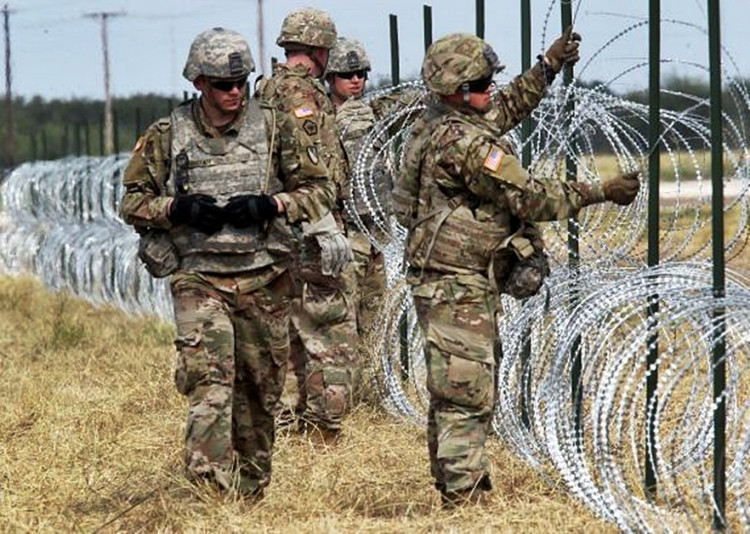The United States Army will be the biggest loser when president Donald Trump announces a national emergency on Feb. 15 to build his already infamous border-wall with Mexico.
Trump on Friday told CNBC there is a "good chance" he will declare a national emergency to secure funding for his border wall. Democrat and Republican lawmakers, however, continue to warn Trump that declaring a national emergency will face legal challenges, and won't result in the immediate release of funds to build his wall.
Out of the $5.7 billion down payment needed to start building Trump's wall, at least $1.5 billion will be taken from the budget of the Department of Defense. And since the $5.7 billion is only an advance for the wall that might cost more than $22 billion to complete, the Pentagon will most likely fork over billions of dollars more already earmarked for other operations.
Trump intends to use military money earmarked, but not spent, to build his border-wall. The earmarked military money Trump plans to seize would have gone to projects like building military hospitals, troops' barracks and airfields, said the BBC. There is, however, upside for the U.S. military in Trump's grab for its money.
Trump will have to convince the military's top brass and lawyers of the Department of Defense the situation along the border with Mexico actually constitutes a threat to national security. This situation should be a real national emergency and not a law enforcement matter, according to Todd Harrison, at the Center for Strategic and International Studies (CSIS), a non-partisan think tank.
"If we had intelligence that an army was massing on our southern border that would clearly be a national emergency," said Harrison. "That's clearly not the case here."
He emphasized there needs to be a true military purpose for the emergency, and not just a law enforcement reason. But there is legal if a very strict, basis for using U.S. Army troops in law enforcement duties.
The Posse Comitatus Act forbids the use of federal soldiers for law enforcement in most circumstances. The purpose of this law signed in June 1878 is to limit the powers of the federal government when using federal military personnel to enforce domestic policies within the United States. The law, however, only applies to the U.S. Army and the U.S. Air Force (through an amendment in 1956).
Rep. Adam Smith (D-WA), the new chairman of the House Armed Services Committee, said the declaration of a national emergency at the border would be an "unwise, weak and irresponsible legal gimmick" to pay for Trump's border-wall.
"President Trump is considering a plan to misuse an emergency authority and divert substantial resources from our military to build a wall on the southern border," said Smith. "This is as clear a statement as any that President Trump values the construction of a wall over military readiness and support for our troops and their families."
Thousands of active duty U.S. troops are now deployed to the southern border with Mexico to support border patrol agents. The Pentagon said there are about 600 active duty troops in Texas; 650 in Arizona and 1,100 in California. Their deployment is set to end Jan. 31.
More than 2,200 National Guard troops are also at the border with deployments scheduled through September.






